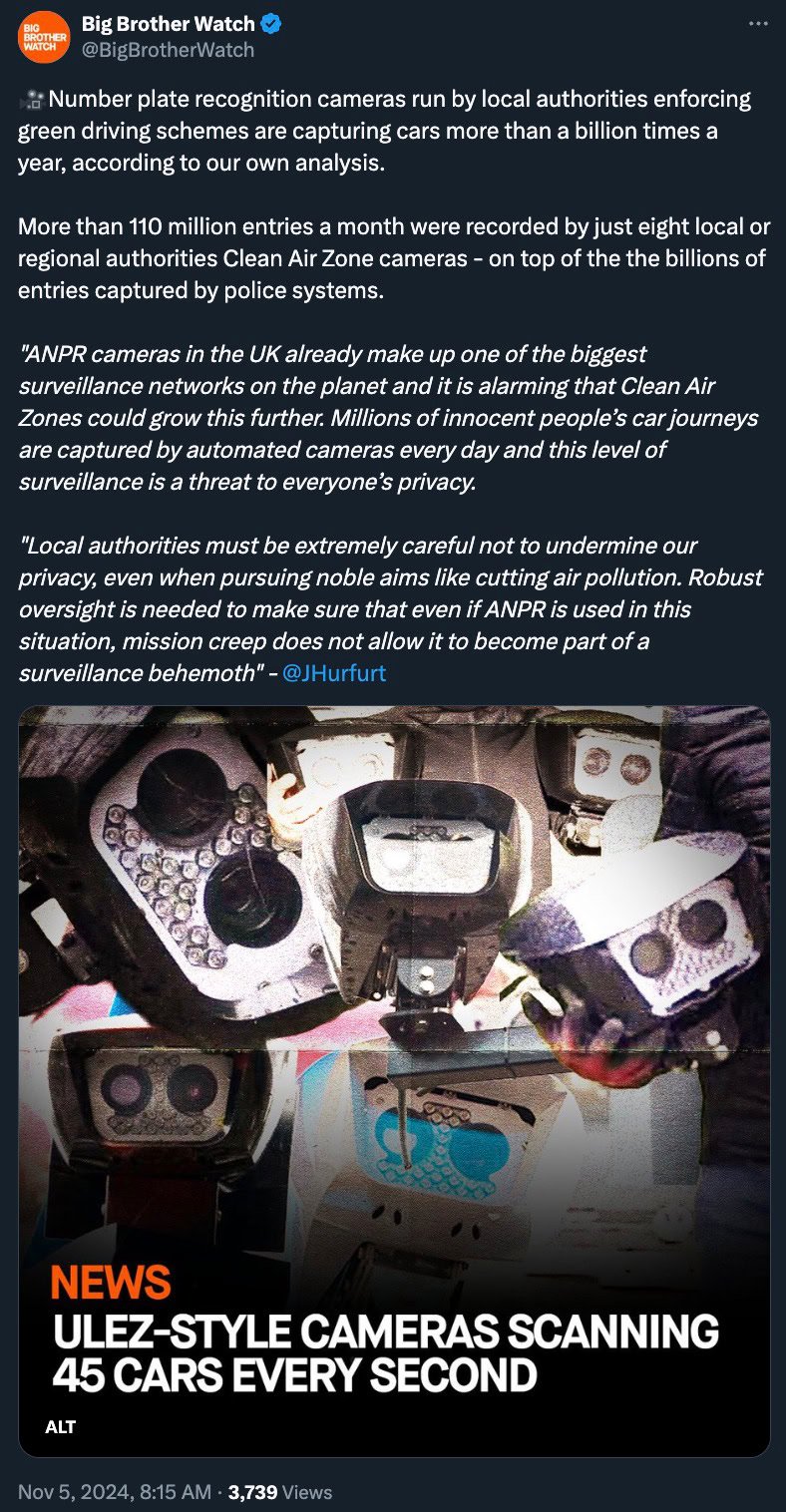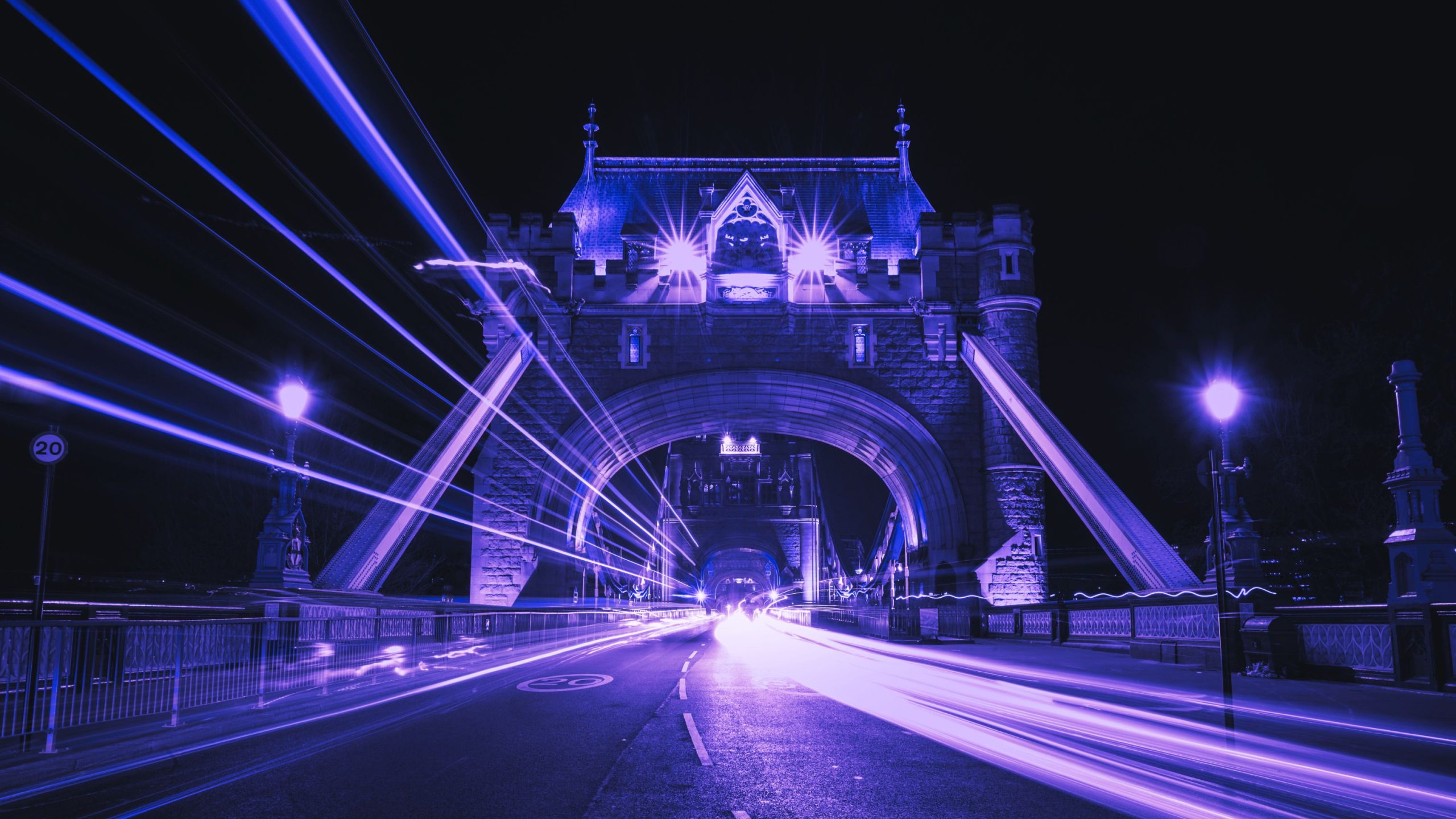The use of automatic number plate recognition (ANPR) in the UK is now reportedly producing mass surveillance on a truly massive scale – cameras are capturing number plates close to 44.5 times per second.
That translates to more than one billion times a year, privacy and civil rights group Big Brother found out via freedom of information act (FOIA) requests, that concerned eight local or regional authorities.
This makes for “one of the biggest surveillance networks in the world,” is how the group summed up the situation.

APNRs are there to enforce green driving schemes (Clean Air Zones, CAZ; in London, this is known as the Ultra Low Emission Zone, ULEZ) by deploying mass surveillance and collecting data on drivers that can be retained for up to a year.
And this comes on top of the police capturing number plates for their own purposes, said to be happening billions of times per year.
The declared reason for the use and proliferation of surveillance cameras in these ULEZ-like schemes is to control how much emissions drivers are allowed to create. The authorities have the right to charge penalties – but in thousands upon thousands of cases, reports say this is based on erroneous data.
Data hoovered up by APNRs is connected to the Driver and Vehicle Licensing Agency (DVLA). One of the fears privacy advocates have is that this data will be used for purposes other than protecting the environment and that this is already happening as some of it is available to the police.
According to Big Brother Watch, Birmingham City Council had struck a secretive, and apparently ongoing deal with West Midlands Police before the 2022 Commonwealth Games which let the police access the Council’s ANPR network.
The response to this FOIA request, however, did not specify how much data was given to law enforcement thanks to this agreement, which the privacy advocates say, provided “unfettered access to number plate data.”
Meanwhile, Transport for London (TfL) data captured from 163.2 vehicles driving past its live CCTV cameras was requested by the Metropolitan police between August 2023 and June 2024.
“Millions of innocent people’s car journeys are captured by automated cameras every day and this level of surveillance is a threat to everyone’s privacy,” warned Big Brother Watch Head of Research and Investigations Jake Hurfurt.






















